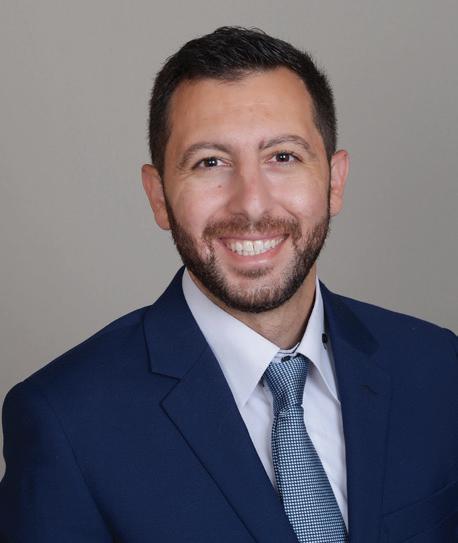
1 minute read
SOFIA GARBER
University of Arizona
Sofiagarber@arizona.edu
Advertisement
Sofia Garber is an upcoming senior at the University of Arizona Honors College majoring in Physiology and Medical Sciences with minors in Spanish and Biochemistry. She is very passionate about Mental Health and Health Disparities.Throughout her time at UA, Sofia has been involved with a Sleep Health Research Lab where she is studying the causes and the implications of how Sleep can impact not only one’s health, but also quality of life. In addition, Sofia has taken various classes studying Health Disparities and how to promote education and advocacy to establish equity and equality in healthcare. This summer, she has been working with Dr. Grandner and studying more in depth about sleep, specifically in minority groups, learning how different sleep schedules can affect cardiovascular health, mental health, and longevity
⊲ PROJECT Disparities in Bed and Wake Times in the US Population Associated with Typical Work Hours
This summer, Sofia did her research project with Dr. Grandner analyzes the relationship between different races and what time they will get in and out of bed when working various hours. The overall goal of this study is to examine disparities in circadian rhythms, with hopes to come up with culturally targeted interventions for sleep health.
MICHAEL GRANDNER
PhD, MTR, CBSM, FAASM Associate Professor, Medicine Grandner@arizona.edu

Michael Grandner is a licensed clinical psychologist, Director of the Sleep and Heath Research Program at the University of Arizona, and Director of the Behavioral Sleep Medicine Clinic at the Banner-University Medical Center in Tucson, AZ. His work focuses on translational sleep research and Behavioral Sleep Medicine, including studies of sleep as a domain of health behavior and the development and implementation of behavioral interventions for insufficient sleep and sleep disorders. Specific areas of focus include:
(1) Downstream cardiovascular, metabolic, and behavioral health outcomes associated with habitual sleep duration and/or insufficient sleep, (2) Upstream social, behavioral, and biological determinants of habitual sleep duration, insufficient sleep, and poor sleep quality, and (3) Development and implementation of behavioral interventions for sleep as a domain of health behavior.





